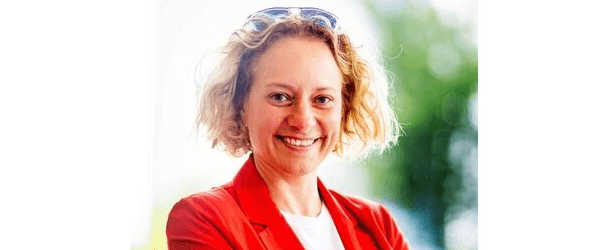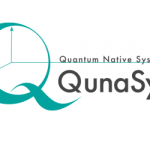Stephanie Wehner new member of Royal Netherlands Academy of Arts and Sciences

(QuTech.nl) The Royal Netherlands Academy of Arts and Sciences (KNAW) has elected 22 new members, including QuTech professor Stephanie Wehner. Academy members, leading researchers from across all the disciplines, are selected for their scientific and scholarly achievements. IQT-News shares the announcements and sections of Dr. Wehner’s interview about her work and the appointment to the KNAW.
The Academy has about 600 members and (at the time) QuTech members include Ronald Hanson, Barbara Terhal, Leo Kouwenhoven and Hans Mooij. Members are appointed for life. The new members will be installed on Monday 12 September 2022.
Stephanie Wehner started out as a hacker, and now occupies a world-leading position with her pioneering research and inspiring vision of a future quantum internet. This type of internet uses quantum effects such as entanglement and non-local interactions to bring about new, secure and rapid forms of communication. By linking disciplines such as fundamental physics and computer science, Wehner has reshaped the field of quantum information. She leads European research on a quantum internet, initiated a successful interdisciplinary conference and set up an interdisciplinary education programme. Wehner disseminates her vision enthusiastically via (TEDx) lectures and interviews with international media.
An interview with Dr. Wehner is available on the QuantumDelta website:
Segments of the interview include:
Q: You started out as a hacker, trying to break in to networks and testing their security measures.
A: Ha, that is true, I was always interested in communication, in how it’s used, and how these things work in practice. Later on in my career, I was always somewhere between physics, where you try to understand how nature works, and computer science, which is a design science. A design science is about how to design a world out of thin air, and then figure out how it works and how one can use it to do useful things, rather than studying what is already there.
Q:Eventually, this path led you to be an author on the 2015 Delft entanglement paper, and now you are you’re leading the European Quantum Internet Alliance, a large European research cooperation.
A:Yes, there are over 40 academic and industrial partners in Europe. Together, we’ve defined goals which are actually quite far away: at the end of 2029. [laughs] And that is something that I actually enjoy, because really bringing something into the real world is not something that any one person can do by themselves.
Q:Computer science and physics were, used to be at least, and probably still are pretty male dominated fields. Did you ever feel hampered by this?
A: Well, it’s very weird in many situations. I have been to many meetings, to find I’m the only woman. And if there is another woman there, she will be someone’s assistant . That just feels strange.
Then there are assumptions that people make. I had a baby at the beginning of the pandemic, and some people expected me to kind of disappear after I had a child. And I think these are not the right expectations to convey.
Of course, there are more women in these fields than there used to be. But this is not the only thing you should be focusing on. Maybe you should ask yourself: why are these numbers so low? I have been in situations where the same person that says ‘let’s increase the number of women’, also questions whether I can still do my job after I return from maternity leave.
Sandra K. Helsel, Ph.D. has been researching and reporting on frontier technologies since 1990. She has her Ph.D. from the University of Arizona.



















